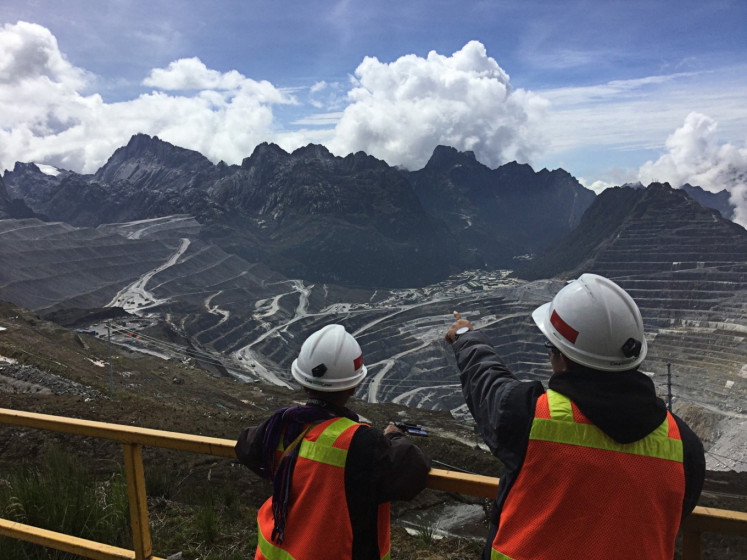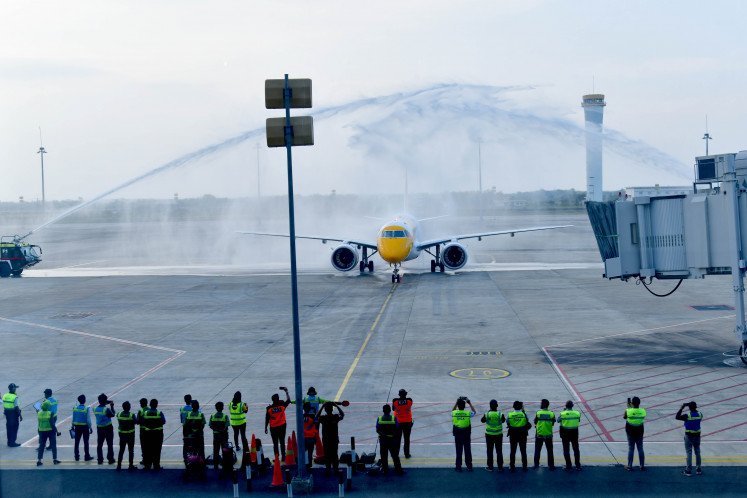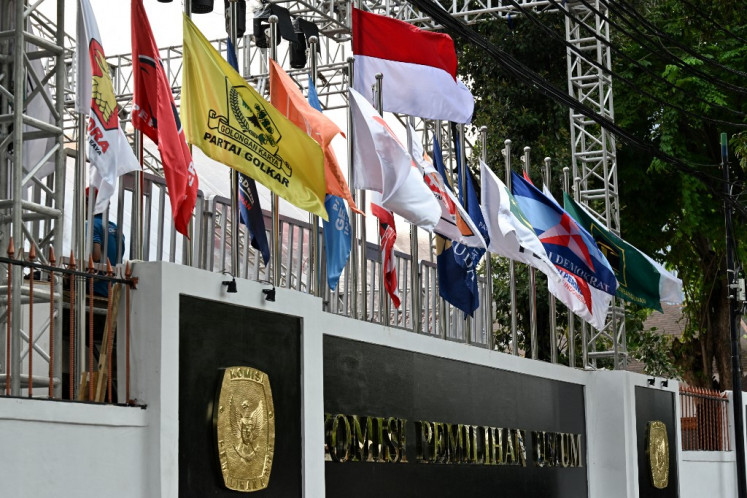Popular Reads
Top Results
Can't find what you're looking for?
View all search resultsPopular Reads
Top Results
Can't find what you're looking for?
View all search resultsCOVID-19 lab workers grapple with deluge of test requests
Hardly ever mentioned alongside other front-line health workers like doctors and nurses, laboratory workers in Indonesia are grappling with an unprecedented scale of testing for the highly contagious coronavirus, as piling samples overwhelm short-handed labs.
Change text size
Gift Premium Articles
to Anyone
Ardila Syakriah
The Jakarta Post/Jakarta
Hardly ever mentioned alongside other front-line health workers like doctors and nurses, laboratory workers in Indonesia are grappling with an unprecedented scale of testing for the highly contagious coronavirus, as piling samples overwhelm short-handed labs.
In a country where the reverse transcription polymerase chain reaction (RT-PCR), the golden standard testing method to detect the new virus, is deemed exclusive mainly for research rather than diagnostic purposes, a shortage of lab workers capable of running the tests has hindered mass testing efforts.
Laboratory workers are on edge as the government looks into easing the already loose social restrictions despite new cases continuing to soar. They fear that future samples pouring in would be more than they can handle.
Freelancer laboratorian Muhammad Mijar Al Faridzy in Surabaya, East Java’s capital and Indonesia’s second-largest city, which is now the COVID-19 epicenter, said his lab had recently been receiving almost twice the number of samples it did when he started the job in April.
The private lab was looking to recruit more people as piling samples began to overwhelm him and his colleagues, who had to work longer hours lately, Mijar said.
"There are many laboratorians, but not all are trained to run the PCR machines, and that is the problem,” Mijar, who is also a veterinary intern, told The Jakarta Post. “Some of my fellow university friends only learned a bit about [PCR] in college, so they do not automatically understand how it works [upon graduating].”
Mijar, who is tasked with the laborious process of manually extracting the virus' RNA from the samples, also shared his worry of contracting the virus even with his personal protective equipment (PPE) on, especially since he still lives with his parents in a densely populated part of Surabaya.
His concerns are justified, as at least three workers at the biosafety level (BSL) 3 laboratory of Airlangga University's Institute of Tropical Diseases (ITD-Unair) in Surabaya have contracted the virus. The incident adds to the long list of frontliners comprising doctors and nurses who have been infected with the virus in Indonesia.
Unair spokesperson Suko Widodo told the Post that it remained unclear how they contracted the virus but admitted that the lab had indeed been overwhelmed with the flood of samples. The lab has decided last week to stop accepting samples from hospitals other than the university's hospital, citing short-staffing as the reason as it tried to avoid a further backlog of tests.
Earlier in May, COVID-19 task-force head Doni Monardo said the limited number of laboratory personnel hampered efforts to meet President Joko "Jokowi" Widodo's target of 10,000 tests per day. As a result, labs expected to run for 24 hours could only run for 8 hours, he said.
He highlighted the need to train lab workers and said the government had sought assistance from the Indonesian Doctors Association (IDI) as well as from an association of midwives and from community health centers to provide human resources for the labs, while also mulling to give lab workers extra incentives.
Indonesian Institute of Sciences (LIPI) Biotechnology Research Center head Puspita Lisdiyanti criticized the Health Ministry’s tardy decision in allowing more laboratories to process the tests in April, saying that labs needed much more time to prepare.
The decision allowing various laboratories to conduct the tests as long as they meet certain criteria was issued a month after Indonesia confirmed its first COVID-19 cases in March and long after scientists called for the decentralization of testing.
Testing on a scale never before seen in Indonesia required a large number of trained staffers familiar with molecular biology working in shifts to ensure they remain focused at work, hence minimizing accidents that could lead to them being infected, she said.
"Manual extraction is a tiresome process; with PPE and N96 masks, workers might have difficulties breathing after just two hours,” she said.
“The solution is to add more human resources, more shifts and also automatic extraction machines [...] Otherwise they might grow tired and forget to follow protocol. Even just fixing their glasses due to sweating could expose them to the virus.”
LIPI has, since March, virtually trained 600 lab workers across the country and trained 10 non-LIPI staffers to be sent to other labs, and it is looking to train more this month. However, mobility restrictions and physical distancing made it difficult to train workers from other regions amid growing demand due to the uneven distribution of lab workers across Indonesia, Puspita said.
A volunteer at a lab in Jakarta, Roswitha Muntiyarso, said the number of samples her lab received had declined, though not significantly, but she feared a new wave of infections would emerge once the so-called government’s new normal scheme was put in place.
"Especially when people's level of understanding of the virus is not the same [...] and their awareness of physical distancing might subside once the restrictions are loosened," said Roswitha, who has been staying at a hotel and avoiding meeting her parents often.
Fauqa Arinil Aulia, an intern at a COVID-19 referral hospital's lab who had to join as a frontliner right after finishing her residency in clinical pathology in March, said the work had taken a toll on her physically and mentally, especially as she had to take extra caution while living with her parents and children.
"I am exhausted, that is for sure, but how can I stop; who else will do it?" she said.










